There’s an issue in podcasting that’s bothered me about fandom culture for as long as I can remember. It’s the uneasy feeling I get when I see fanfiction written about real people. It’s the pang of pain I feel for celebrities whose personal lives get speculated on by complete strangers. And it’s something I’m seeing more and more of in podcasting.
The phenomenon is what happens when parasocial relationships allow strangers to feel educated about, or entitled to, a creator or performer’s life.
If you want a primer on the topic, we covered parasocial relationships in podcasting on an episode of Tuned In, Dialed Up, the podcast I make in partnership with fellow podcast critic Gavin Gaddis:
What is a parasocial relationship?
Coined in the 1956 piece “Mass Communication and Para-Social Interaction: Observations on Intimacy at a Distance” by Donald Horton and Richard Wohl, the term “parasocial relationships” describes the relationship an audience member has with a performer who does not know they exist. While the term was coined in the essay, the phenomenon has existed for as long as performers have existed: audience members have parasocial relationships with actors while watching a play, or musicians while watching a performance.
Parasocial relationships became complicated, though, when performers started addressing their audience members directly. This phenomenon was common for game show hosts, news reporters–but more recently, it’s the de facto setup for YouTube videos. It’s a form that makes the audience feel like the performer is speaking directly to them, fostering an important relationship between themselves and that one specific audience member as an individual. Even when YouTubers use introductions like, “Hey guys!”, or use phrases like, “I love you all so much,” the audience is left with the feeling that the YouTuber is still saying hello to them specifically, that the YouTuber loves them specifically.
Shannon Strucci’s “Fake Friends” series is a look into parasocial relationships–what they are and, namely, how they’ve affected YouTubers and other digital creators. Strucci’s series, the second video of which is an almost two-hour-long opus (almost no time of which is wasted or used inefficiently) on the topic, are the best introduction to how these issues manifest in businesses where authentic, personal, intimate relationships with creators are integral to that creator’s success. I recommend the series because it not only touches on what parasocial relationships are, but also two facets I won’t be going into depth here:
- How creators purposefully foster parasocial relationships to manipulate their audience to increase their profits, and
- The sides of parasocial relationships that are normal and, in some cases, can even be somewhat positive.
The parallels between YouTube and podcasting are abundant, even when leaving out the overlap between creators who work in both mediums. Like YouTube, podcasting has a low barrier for entry compared to filmmaking, TV, or publishing a novel. It’s a DIY medium that feels novel and punk-rock, eschewing much of the gatekeeping and blueprints of traditional art forms. It’s a type of free-to-experience new media that people flock to, that is played off as a joke, and that is more established and grounded than most people seem to think.
But the clearest undeniable similarity between the two mediums is its intimacy. “Intimate” is a word so often applied to both YouTube and podcasting, it’s become an almost joke-like cliche–but like most cliches, it’s rooted in truth.
And when a medium is inherently intimate, inherently tied to the perception of a look into a creator’s authentic self, parasocial relationships become more and more common. This has been discussed in YouTube in sources ranging from Polygon to NPR.
But like YouTube, it’s becoming more and more of a problem for podcasters, too.
Parasocial relationships in podcasting
One of my favorite jokes about podcasting is also a perfectly efficient discussion of how the medium leads to parasocial relationships:
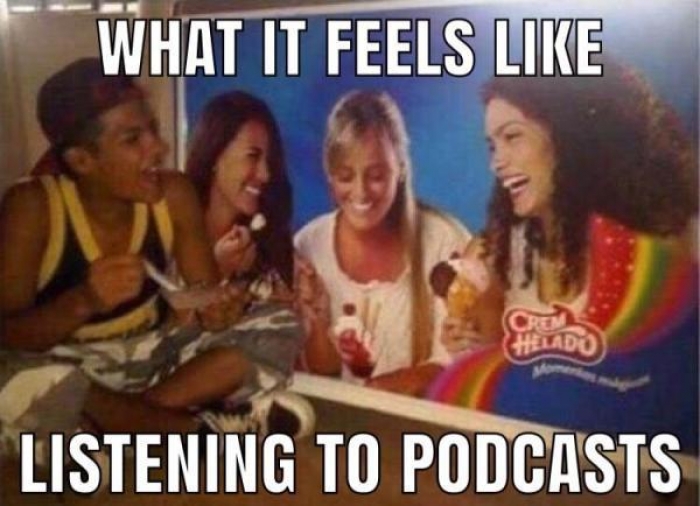
Podcasts are a medium that (if you listen on headphones, as most listeners do) are directly delivered to you. The stories told in each episode live in your ears, making them specifically personal; the fact that they’re often personal stories or discussions obviously helps this, too. I’ve talked publicly about how what lead me to podcasting initially was a crippling loneliness with nowhere else to turn, a need to feel connected to anyone. The phenomenon is pervasive: podcasting is free–a hell of a lot cheaper than therapy–and you can listen to episodes just about anywhere. They’re a way to feel connected, and it’s common for podcast listeners to feel like podcasters are their friends.
But there is a difference between feeling a friendship, a sense of comfort, between yourself and a podcaster, and assuming that friendship to be real. Something that makes podcasters appealing is that they have an everyman quality to them: anyone can make a podcast, and this means that in many genres, podcasters feel more “normal” than creators in other mediums. It’s easy to feel like podcasters would be your friend if you ever met: it’s likely the listener is of the same socioeconomic status as the podcaster, sharing not only other basic demographics as the podcaster, but also their interests, jokes, and philosophies. Why wouldn’t podcasters want to be friends with people who know them well, who share their interests and senses of humor?
The problem is that podcasters are performers. This isn’t to say that they’re lying to their listeners, skewing what they’d normally say. Instead, I mean that for podcasters, their work is work.
In Lindsay Ellis’s above video, “YouTube: Manufacturing Authenticity (For Fun and Profit),” Ellis explains what authenticity means for online creators. It’s a video about YouTube but, of course, also applies to podcasting.
When parasocial relationships go awry, it isn’t just a case of fans developing unhealthy mindsets. It’s also a case of the podcaster being directly impacted by fans who have an expectation that they will be cared for, tended to, appreciated. Podcasting is often seen as a two-way street between the podcaster and their fans: podcasters provide the episodes, and fans provide the numbers podcasters use for sponsorship, or just direct financial support. Like YouTubers, podcasters are only ever successful because of their fans and supporters. YouTubers and podcasters–those who create independently versus via network, at least–rely on supporters’ contributions, whether that be through submissions to the podcast, financial support through Patreon, or just listens.
But because of this specifically intimate medium, fans also often feel entitled to something more than the podcast when they invest their time, money, and, yes, energy. Getting the podcast (and sometimes bonus content or direct conversations with creators via Patreon) sometimes doesn’t feel like enough for some listeners. Because they already feel like they’re friends with podcasters, and because podcasters are often so accessible over different forms of social media, many fans have begun treating creators like they are friends.
Let’s take a look at the easiest case study for this: the McElroy family. The main trio of the McElroy family is the three brothers (Justin, Travis, and Griffin) of Maximum Fun’s My Brother, My Brother and Me, a podcast with a huge following that even spun into a webseries via Seeso, later acquired by VRV. The brothers also make the wildly successful actual play podcast The Adventure Zone with their father, Clint, and each brother also has a podcast with his wife. The family has made so many podcasts for so long, it’s hard not to feel like you do know them, to some extent.
But let’s talk some numbers. As of writing, the family’s YouTube channel has about 113,000 subscribers, and YouTube isn’t their main platform by any means; it’s just the easiest platform to pull numbers from, given podcatchers don’t publicize subscriber counts. In “FAKE FRIENDS EPISODE TWO: parasocial hell,” Strucci discusses a YouTuber who feels beholden to every single one of his four million subscribers–a number larger than the population of his entire country.
The McElroys’ 113,000 subscribers on YouTube–their secondary platform, miles behind their popularity in podcasting–is about double the 47,079-person population of their hometown of Huntington, West Virginia, according to the July 2017 census data. In their Seeso/VRV show, the brothers jokingly try to become mayors of their hometown–funny, because they’re incredibly ill-equipped to be mayors. Being beholden to their subscribers would mean not only being akin to overseeing double the population of Huntington, but also giving individual attention to every single resident–while also creating their twelve podcasts, engaging on social media, doing live shows, writing books and graphic novels, and also having lives.
This doesn’t mean that the brothers necessarily feel beholden to all of their fans; I wouldn’t claim to know how they think or feel, because I do not know them as people. It does, however, seem to be how many of the fans think they should behave. Between Medium posts and fans using My Brother, My Brother and Me live shows to promote their own podcasts, there’s seemingly a feeling that the McElroys, and podcasters in general, should treat their listeners like friends, just like the listeners think they should be treating podcasters.
And this certainly isn’t a problem only for podcasters with large followings. If anything, it seems like podcasters with more modest followings–podcasters who must depend on their small audience for financial support and marketing via word-of-mouth recommendations–might struggle with parasocial relationships even more. Smaller podcasters are easier to reach on social media or via email. They usually actively engage with fans Twitter, in Facebook groups, on Instagram, on Tumblr, and in Discord servers–both because they enjoy it and because it’s a mandatory part of marketing a podcast. With such close contact, the lines between fan and friend become blurry, and assumptions about those lines can be easily made by fans who feel entitled to the podcaster’s attention or affection.
The problem is exacerbated, too, by the relative low barrier of entry into podcasting. More than once, I have seen podcast fans become podcast creators not because they’re dedicated to creating in the form, but because being a fellow creator gives them more social cache than simply being a listener. This, in some fans’ eyes, is an expedited means to friendship, collaboration, and even romantic relationships with the podcasters they admire. Because the podcasting industry is one that largely prides itself on being open, welcoming, and friendly to new podcasters, there is a feeling that all of those new creators must be treated as a friend immediately, lest the community prove itself to actually be yet another creative industry clique.
But podcasters don’t see fans as friends, because they do not know their fans. Unless you’ve had direct, prolonged conversations with podcasters, they don’t know who you are. Asking podcasters to treat you like a friend isn’t like asking them to treat a stranger like a friend. It’s the exact same thing. It’s not a simile; it’s reality.
What podcasters have to say
But you don’t need to take it from me. In researching parasocial relationships in podcasting, I sent out tweets asking podcasters if they had any experiences they wanted to discuss. I got more responses than I could have expected, and while everyone who responded emphasized how grateful they are for their listeners, they all emphasized their exhaustion, too.
Here are excerpts from some of the accounts I received. They’ve all been edited for clarity and concision, including some names being changed for anonymity. Be warned that the following section discusses mental health issues, including self harm.
From Bethany Aguad of DnD Raw
Not long ago, we received a lengthy email from a male listener providing feedback on my character and in general my performance on the show. I think he assumed that my husband who runs our game monitored our mailbox rather than me (I manage our social media, email, etc.) as he expected that this email would not be shared with me directly. Essentially, he felt my character was too powerful, and that this conflicted with statements I had made on the show as a player. This lengthy email explained that my character was a Mary Sue who needed to be “fixed” despite “no one on the show seeming to mind for some reason.”
There followed a lengthy section detailing how to explain to me how I needed to learn to play the game correctly. He went so far as to listen back to old episodes to find examples of things I had said out of character to illustrate how I showed my ignorance of the mechanics. He also conflated the only other female cast member (at that time) with me, and seemed to fail to realize that we were two different people. He had no feedback on the male cast members, other than his concern that they were being overshadowed.
In general, the tone was blandly explanatory, as if there was an assumption that this feedback would be welcome and well-received. [. . .]
We learned that after one particular issue with a listener sending constant messages to one of our female cast members expecting her to respond quickly. Eventually, it escalated to him professing his romantic interest in her.
The greatest challenges have come from interactions with listeners on our small community Discord server. We tend to take the lead on interacting with listeners about our characters, story, and content, and many of those interactions are substantive, rewarding, and welcomed. However, we have noticed that there is a constant expectation that we will be present and available to all requests for responses, particularly from some of our male listeners. [We have] boring day jobs on top of life responsibilities. We started off without any rules. Number one thing we have learned is to be clear about boundaries.
We learned that after one particular issue with a listener sending constant messages to one of our female cast members expecting her to respond quickly. Eventually, it escalated to him professing his romantic interest in her. She was shocked because his attachment to her was driven by his time spent listening to the podcast. Also, after being rebuffed he continued to harassing her.
It’s strange when you realize the time someone has spent with her voice, giving them an indication that they know you.
From an anonymous podcaster
We’ve met a few of our fans in person and they’ve all been lovely, and we’ve had social media rapport with a good number more without issue so far. The “exception,” if you could call it that, is a fan [of our lighthearted comedy podcast] who started messaging us telling us that they were isolated and depressed, and they felt like we were their lifeline to other people “like them” because they lived in a small, regressive town. Ultimately, nothing dramatic happened, but I remember feeling a sudden kind of panic of responsibility. What could we do to help them, a virtual stranger? What if they felt like we, too, were pulling away? What if we skipped a week and it really affected their mindset and they hurt themselves?
Simultaneously, I wanted to reach out to them more proactively AND shut down all contact. It was hard to balance wanting to be a friend to someone in need and wanting to protect myself and my show from taking on an outsized responsibility. [. . .] So the nice person in you is like, “Let’s talk! Are you okay?” And the other half of your brain is like, “You don’t know this person’s life and you could be doing more harm than good.”
Being accessible to your fans is amazing until it’s not.
From an anonymous podcaster
At a glance, we’ve had an odd history with it–our earliest listeners were friends, and friends of friends, so we were held accountable in odd ways, as well as having our Kickstarter basically held hostage.
To start – our first listeners were friends, and friends of friends. It meant that the line between fans and friends already was blurry, and added an accountability that was both a positive (it made us make sure we kept to our promised schedule, because they would reach out directly and ask!) and a negative (they felt very comfortable reaching out to ask for favors, comments, with impolite comments, or pushes for what they wanted us to do).
It culminated in three ways:
- We had a hard time finding and replacing players, because we would stick to within our own social circles, and they generally had the friend-fans that we didn’t want to disappoint/drive off because our listener count and downloads was so small.
- We ended up with a “missing stair” in our player circle, because she was one of the fan favorites; she had a side interaction that drove a particularly hardcore fan to interact regularly with us and help drive further traffic; she was a co-worker/friend of the DM; and a number of her friends were in our wheelhouse of the type of content creators we were looking for, and there was the promise of bringing them on the game, or into another show, etc. (She ended up leaving after a particularly bad event at a convention, and we decided to rough it out.)
- The Kickstarter. Our DM, who was supposed to be a temporary DM on a short campaign until the DMs we wanted to represent our site got their footing, was asked if he wanted to do the writing/editing for it (he has the education for writing pretty things, and the rest of us were pretty busy). He refused, as he didn’t want to be seen as the voice of the podcast (a very fair point, and one we did agree with). So, the rest of us barreled ahead. A week after we launched, he approached us that friends of us (and some we thought were ours!) didn’t want to donate to the Kickstarter, because it wasn’t done well/written well, so he wanted to “take it over.”
From an anonymous podcaster
I had someone message me and ask, “Hey, do you want to guest on my show?” To which I said yes, but then found out that they apparently thought they were booking me for an extended showing? Like months of commitment?
People will ask me to guest on things or contribute, and I’ll say yes, and then the level of labor will jump from “guesting” to “co-creating or producing” which feels bunk. This has applied to both labor in the project and emotional labor of them asking for advice and wanting to decompress like we’re immediately best friends now that I’ve guested on something.
The power balance from all our interactions felt off.
After [one of these cases], [a podcaster I helped] messaged me for small talk, to talk about her day, and stresses she and her friends were dealing with. This lasted for a while before stopping, and she only stopped because I just had to stop responding. I’m not good at small talk in my day to day, so these conversations were just incredibly stressful for me. She would also use extremely familiar and flirty language with me, even after I asked her to stop.
I know what creator-to-creator conversations are like. This very much felt like a fan first, creator second. The power balance from all our interactions felt off. And honestly, I think it’s just hustle, which I can completely respect, but I’m not that much higher on the totem pole then she is, so I can’t help her grow as much as I think she thought.
It’s very much looking at each person as a ladder rung to get you further, there’s just ways to do that that don’t feel dehumanizing for the people on the receiving end.
From an anonymous podcaster
I’ve got 250-ish Twitter followers, and my podcast gets between 20 and 40 downloads per episode. I am by no means a big name. Despite this, I’ve had a lot of troubles in the last year with parasocial relationships because of my podcasting.
The thing that keeps happening to me, and to my friends to some extent, is people listen to our podcasts and then think they are entitled to our attention. I often have people tag me on twitter or discord to repeat a joke I made on my podcast back to me, or to add their thoughts to some discussion. I worry that seems innocuous; to me, what it often feels like is a stranger shouting at me on the street, “Hey do you remember that thing you said last week? Here’s what I think!” That’s a very weird thing to do when you actually think about it, even though platforms like twitter make it seem perfectly reasonable to just @ me whenever you want.
Sometimes, I get podcast listeners sliding into my DMs to tell me what they thought, which is just completely unacceptable to me. It’s an even more intense demand for my attention. I rarely think these demands are malicious, but rather well-intentioned fans just not realizing what they’re putting on me. They’re just assuming familiarity that isn’t there, and when eight other people are doing the same thing, it really starts to freak me out.
I’ll tell you a story that happened to a friend last week, but that I relate to very deeply because similar things have happened to me many times. Our little corner of the internet does lots of TV recap shows. My friend started watching a show, and tweeted, “Hey, I like this show!” They were not watching this show for a podcast, they were just watching it because they like the show. Within minutes, several people had tweeted back at them, “Are you doing a podcast about that show? I love that show! Let me be on your podcast!” It just feels absurd to me. For one, it feels like folks demand podcasters create content out of every moment of their lives. Because podcasts are perceived as easy to make (they are not easy to make), people think we should just podcast about everything.
I am very scared that others will read about what I go through and say, “She doesn’t have it so bad.” Maybe I don’t. That doesn’t change the fact that what I go through does put tremendous stress on me.
And furthermore, it is so weird to ask to guest on someone’s podcast before it even exists. It devalues the work podcasters do. Even for my podcast with a very small following, I care a lot about the work and put a good number of hours in. Making an episode of a podcast is more work than just, “I’ll call you on the phone, and we’ll chat for 35 minutes, and then it just magically appears on the internet.” Usually when randos ask to be on a podcast, they have a lot of misconceptions about the work (especially because guests don’t have to do the sorts of work that hosts and editors do).
Often, I worry I’m too prickly. Some of the things that get under my skin with this stuff may not bother others as much. I am very scared that others will read about what I go through and say, “She doesn’t have it so bad.” Maybe I don’t. That doesn’t change the fact that what I go through does put tremendous stress on me. In the past year, I’ve had to talk to several fans and say, “You are repeatedly crossing my boundaries—boundaries that I have tried to communicate to you—and I need this to stop.” That’s a lot for a person who is averaging 30 downloads per episode! I can’t imagine getting 300 or 3000 downloads per episode, because at some point trying to talk to individuals becomes impossible. I get scared of my podcast continuing to grow even though I want it very badly to grow.
My partner said something the other day to try to reassure me. Let’s pretend I am getting too hurt by parasocial relationships too easily. Let’s say I am being too sensitive and these fans are being perfectly reasonable. Even if that were true, I have tried repeatedly in public and private to establish my boundaries, so I have done everything I can to prevent this. Despite me doing everything I can, I am still getting bombarded with people who assume that they can demand my attention whenever they want it just because they listened to my podcast.
From Jeffers Haile of Third Player Games
Myself and 2 others run a video game podcast, Third Player Games Podcast. We’ve been gaining traction on Instagram lately, and a new follower messaged me one day asking how he could get involved. I didn’t know what he meant, so I politely asked him just that: “Sorry, but what do you mean?” He wanted to know how he became part of the podcast.
Clearly this guy messaged us out of nowhere. That said, I always try to engage in a friendly way, especially when I’m communicating through our brand, but I knew where this was going. I just told him, “Oh man, we’re very flattered, I really appreciate it, but we’re a tight group of 3 people that have been doing this for a year. Sorry, but we really appreciate the offer.”
I believe his response was something like, “F*** you,” or, “F*** you c***”–something super unprovoked and insulting. I blocked him immediately.
Basically, it was what I imagine a lot of women go through (not comparing what women go through to this situation), in the sense that some creepy guys do: a follower is overly privileged, thinks they can walk on [us], or that we owe them anything. They are nice and compliment us until they don’t get what they want, then they show their true colors.
From Riley Hopkins of Alien Happy Hour
It’s one things when friends do it, and another when strangers do it.
The major thing is that a lot of people who don’t know me take on the jokingly antagonistic tone that my friends do. It’s one things when friends do it, and another when strangers do it.
[Here, Hopkins shared a screenshot with me of a pun made on the podcast’s Twitter account. A fan simply replied, “I hate you so much.”]
It’s very much things in this energy, just, “This sucks I hate you,” when what they mean is, “This joke is funny, and I groaned at it.” There’s a lot of that, even from podcasters bigger than me trying to be familiar and making jokes about how a thing I did sucks, or how I’m an idiot. It’s a way that’s okay to talk to your friends, if you’re consenting, but talking to a stranger with that level of familiarity is bogus.
I have friends who are incredibly loud about their boundaries, and people still say, “Ah yes, this would be terrible for someone who’s not their friend to do. Luckily, this doesn’t apply to me!”
What does this mean for fans?
First and foremost: remember that parasocial relationships are not inherently bad. Like any relationship, they’re neutral–until they’re allowed to become destructive. Being mindful of those boundaries is going to require some introspection, and it might be frustrating or uncomfortable. Media has allowed and encouraged these kinds of relationships for decades; magazines sell better when they’re selling the stories of celebrities, so viewing their stories as narratives versus voyeuristic looks into the lives of actual human people is part of the marketing. It feels counter-intuitive to take steps back from that mindset. It can feel like an attack. But it’s necessary in the strive to be empathetic and respectful to the creators you want to support.
If you want to be more mindful of how you’re treating podcasters, you need to confront the fact that no matter how many hours of their show you’ve listened to, no matter if you follow them on every social media platform, you do not know that podcaster as a person unless you’ve had many ongoing conversations with them, like a friend would. Making assumptions about the podcaster–especially assumptions about their personal lives–isn’t a form of flattery. It can be invasive, and even harmful.
Something I cannot stress enough is not to become a podcaster for the purpose of connecting with, making friends with, marketing with, or attempting to date a podcaster because being a fellow creator puts you on a similar playing field. This is something I’ve seen many times, ranging from people auditioning for roles in audio fiction for the purpose of being friends with creators to people writing romantic interest roles for actors they have crushes on. It should be clear how predatory and manipulative these practices are. It is devastating to me that I have to write this down, that it’s common enough to merit its own paragraph here.
Remember that podcasters do not owe you anything. There’s something to be said for asking creators to be more inclusive, kind, and empathetic in their work–that’s not what I mean here. Instead, what I mean is that creators do not have any obligation to make episodes on topics you want to hear about, follow storylines or ships you want, or execute episodes in the way that you want. If a podcaster makes a creative decision you don’t like, stop listening. Make your own podcast. There is a difference between asking podcasters to do better (especially in the case of representation, accessibility, or other situations of empathy) and feeling entitled to the podcast’s creative direction.
And always, always remember that podcasters are people. Podcasters are people with their own lives, thoughts, feelings, intentions, opinions, friends, and family. If they aren’t asking for more friendships, do not assume they must desire your friendship. If they aren’t asking for feedback or input, do not assume they must desire your input or feedback. Podcasters are not therapists, and treating them like they are is a disservice to you and to them.
The best way to make sure you’re not letting your parasocial relationships run away with you is to, as one anonymous podcaster told me, “Consider podcasters complexly.” It can be difficult to remember that the creators we care about are more multifaceted than we can know.
I want to leave off with a moment from Strucci’s “FAKE FRIENDS EPISODE TWO: parasocial hell” that has lingered with me since I first saw the video, something that has run through my mind as I recorded the episode of Tuned In, Dialed Up linked at the top of this article, as I read articles when they popped up, as I dove further into scholarly essays on the subject, as I reached out to podcasters on the topic, and as I wrote this article:


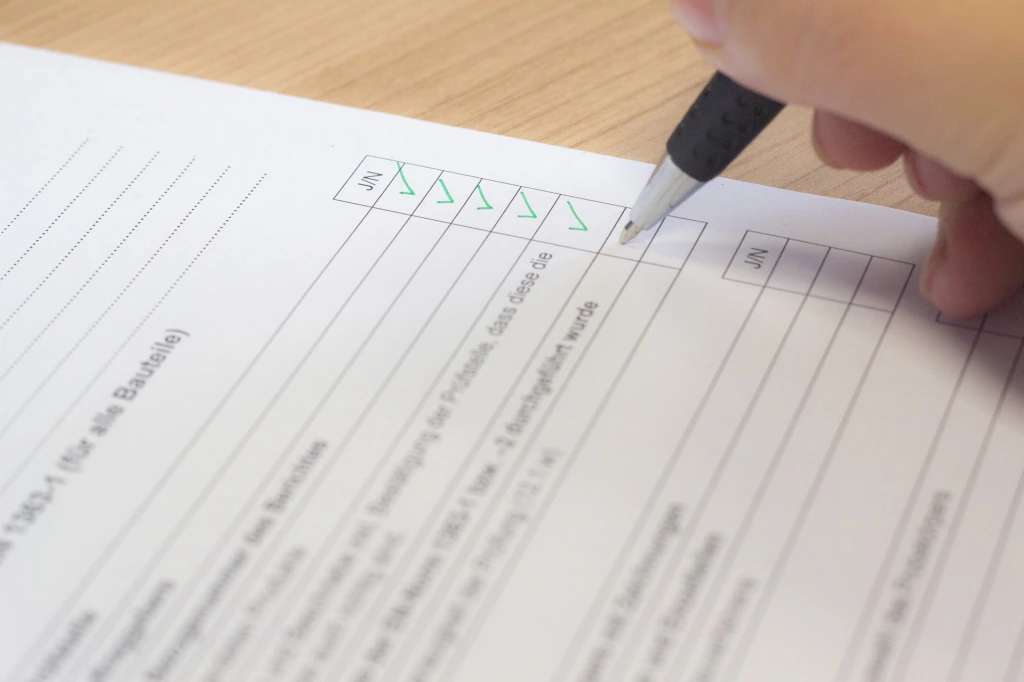
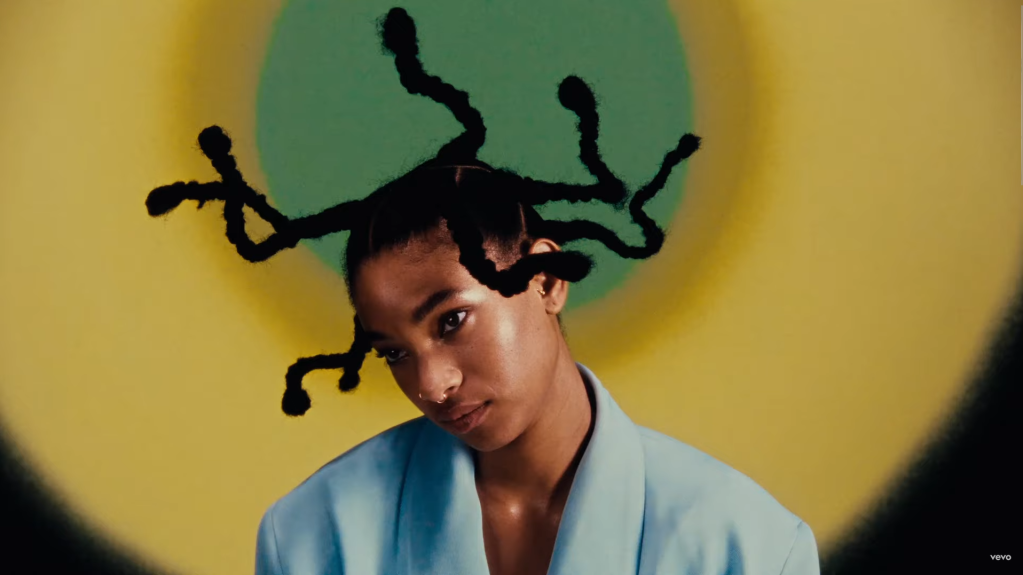
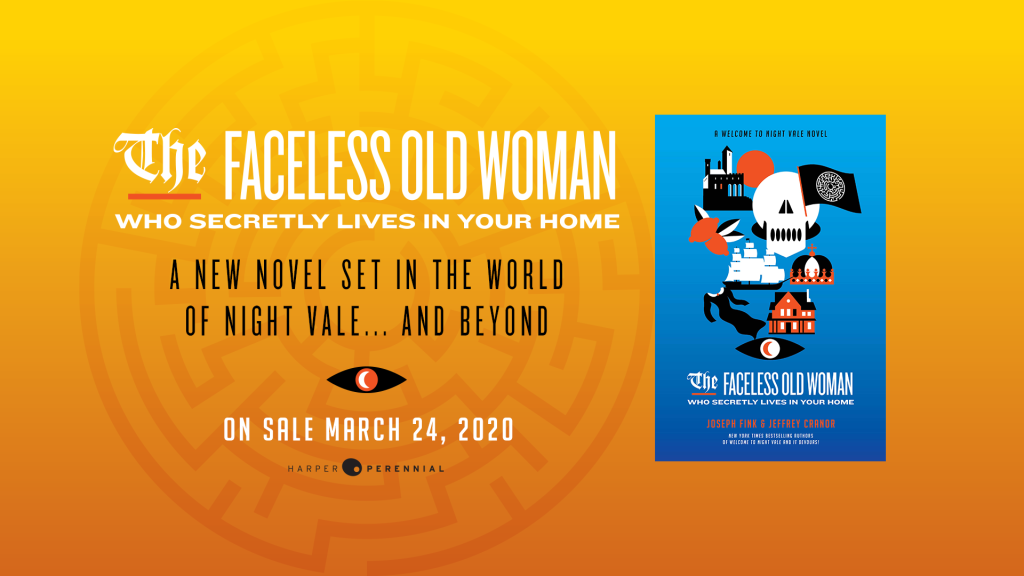
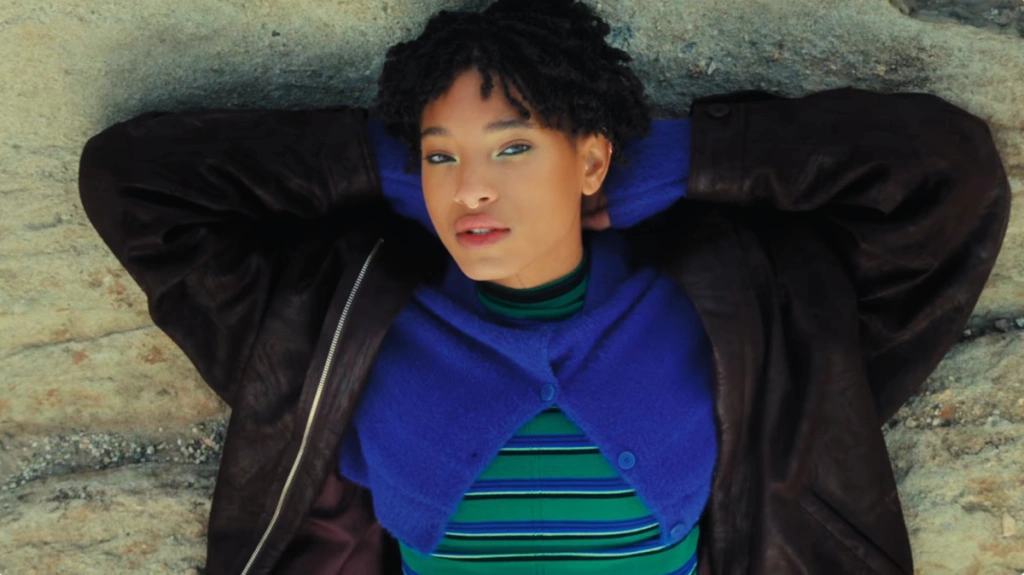


Leave a comment